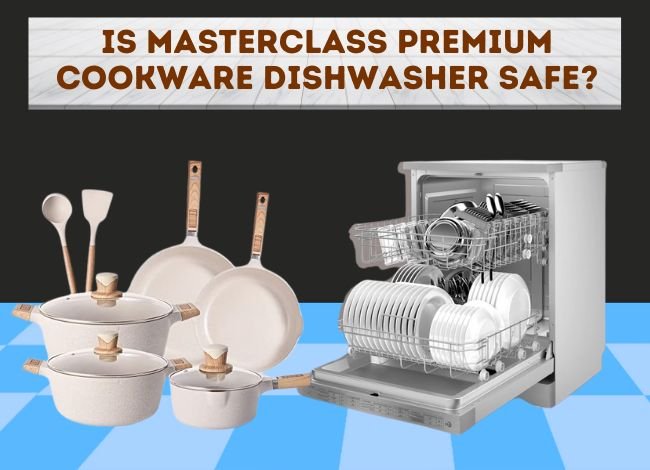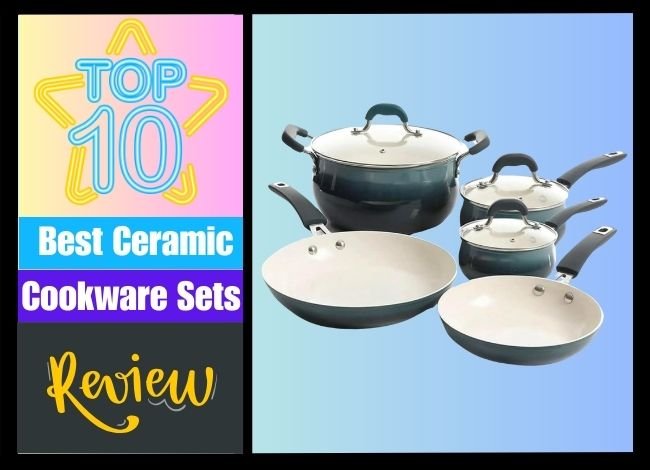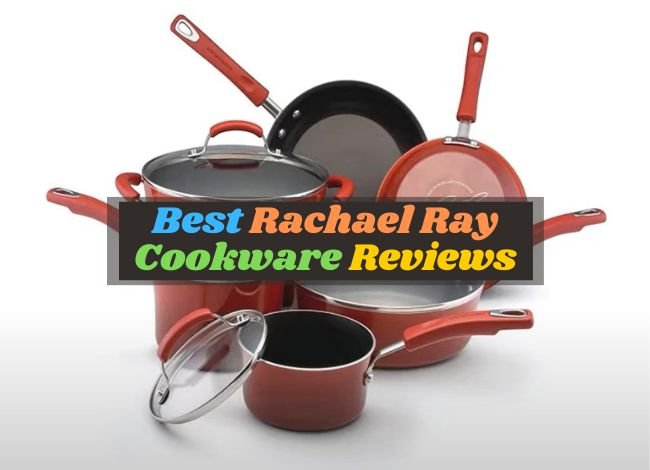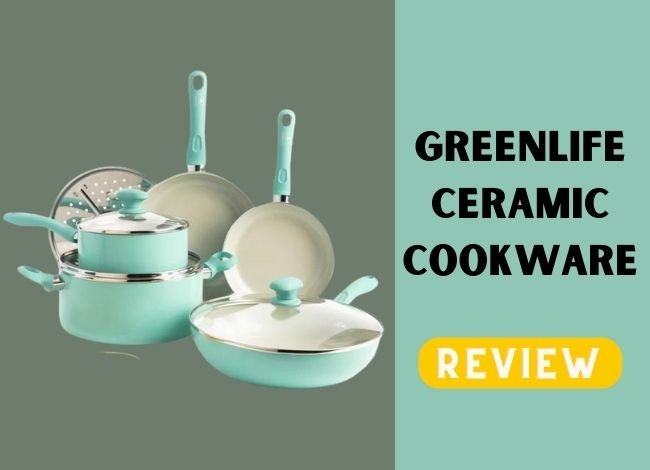Last Updated on January 10, 2024
Cookware is an essential investment in our kitchens, and choosing pieces that provide excellent performance and are durable and safe to use is crucial. Among the many brands available in the market, Masterclass cookware has gained popularity, and many often ask about its features and safety. Below, we delve into some frequently asked questions about Masterclass cookware and other related topics.
1. When it comes to this, is the Masterclass dishwasher safe?
Masterclass cookware is designed with the user’s convenience in mind. Most of their products are dishwasher safe, which means they can be cleaned without manual scrubbing. However, like with any premium cookware, it is always recommended to read the care instructions provided with the product to ensure its longevity.
2. Is Masterclass Cookware non-toxic in any manner?
Masterclass cookware is made using non-toxic materials. They ensure their products are free from harmful chemicals such as PFOA, PFAS, lead, and cadmium. Using non-toxic materials ensures no harmful substances leach into your food during cooking.
- Coating: If the Masterclass cookware is nonstick, it’s important to know what type of nonstick coating it uses. Older nonstick coatings used to contain PFOA (Perfluorooctanoic Acid), which has been linked to health concerns. However, most modern nonstick coatings, including those often used by reputable brands, are PFOA-free.
- Material: Other materials used in cookware, such as stainless steel or cast iron, are generally considered safe and non-toxic. Aluminum cookware, as mentioned earlier, can leach small amounts of aluminum into food, but this is typically not considered harmful in standard culinary use.
- Temperature Use: Regardless of the material, it’s important to use cookware within recommended temperature limits, especially for nonstick pans. Overheating can break down coatings and potentially release harmful substances.
- Certifications: Look for any safety certifications or compliance with food safety standards. Cookware often has labels indicating that it is free from certain harmful chemicals or that it meets specific safety standards.
- Brand Reputation and Reviews: A brand’s reputation and consumer reviews can also provide insight into the quality and safety of its products.
3. Is Masterclass quality cookware that could be used in the oven?
MasterClass cookware is known for its high quality and versatility and oven-safe capabilities. Most of their products are designed to withstand high temperatures, making them suitable for oven use. However, it’s important to check the specific product’s guidelines, as the maximum temperature tolerance can vary. Generally, MasterClass cookware is a reliable choice for both stovetop and oven cooking, offering durability and convenience for various cooking needs.
4. Is Masterclass cookware a reputable brand to buy from?
MasterClass cookware is considered a reputable brand, known for its quality and affordability. They offer a diverse range of products suitable for both amateur and experienced cooks. While not as high-end as some luxury brands, MasterClass cookware is praised for its durability, functionality, and good value for money, making it a popular choice among consumers seeking reliable cookware without a high price tag. However, personal preferences and specific cooking needs should guide the final purchasing decision.
Related Article: Is Masterclass Cookware Good?
5. Is Masterclass ceramic cookware a safe option to use?
Ceramic cookware by Masterclass is made from natural materials, ensuring it’s toxins-free. It provides excellent heat distribution, and its non-stick feature makes cooking and cleaning a breeze. So, yes, Masterclass ceramic cookware is safe to use.
Benefits of Ceramic Cookware
- Non-Stick without Harmful Chemicals: High-quality ceramic cookware is often free from PTFE (Polytetrafluoroethylene) and PFOA (Perfluorooctanoic Acid), chemicals used in traditional non-stick coatings that have raised health concerns.
- Heat Resistance: Ceramic coatings can typically withstand high temperatures, reducing the risk of releasing toxic fumes, unlike some traditional non-stick coatings that break down at high heat.
- Ease of Cleaning: The non-stick surface makes ceramic cookware easy to clean, reducing the need for excessive scrubbing or harsh cleaning agents.
Considerations for Safety
- Quality and Durability: The safety of ceramic cookware can depend on the quality of the product. Cheaper or lower-quality ceramic coatings might chip or wear off over time, potentially mixing with food.
- Usage and Care: Following manufacturer guidelines for use and care is important. Avoid using metal utensils that can scratch the ceramic surface, and avoid overheating, which can damage the coating.
- Manufacturer Reputation: Researching the brand and product reviews can provide insight into the quality and safety of the cookware. A reputable brand like Masterclass typically follows industry standards for safety and quality.
6. Is it possible to bake using Bakelite handles?
Bakelite handles are generally not oven-safe. If exposed to high temperatures, Bakelite can warp or melt. Always check the manufacturer’s guidelines before putting any cookware with Bakelite handles in the oven.
7. What is the most effective ceramic frying pan to purchase?
The “most effective” ceramic frying pan often depends on individual preferences. When shopping for one, consider its heat distribution, non-stick properties, handle comfort, and durability. Brands like GreenLife, T-fal, and Cuisinart are renowned for their ceramic cookware.
8. Is cast aluminum a safe material to work with?
Cast aluminum cookware is generally safe and offers even heat distribution. However, there have been concerns about aluminum’s potential health effects. It’s vital to choose anodized or coated cast aluminum cookware to prevent the aluminum from coming into direct contact with food.
9. What does the phrase “induction safe” mean?
The phrase “induction safe” refers to cookware compatible with induction cooktops. Induction cooktops use electromagnetic fields to heat cookware directly. For cookware to be induction-safe, it must have a magnetic base, typically made of iron or magnetic-grade stainless steel. This feature allows the cookware to conduct the electromagnetic energy, generating heat for cooking effectively. Non-magnetic materials like copper or aluminum alone won’t work unless a magnetic layer is added to the base.
10. Is it possible to use induction pots in the oven?
Yes, many induction-compatible pots can be used in the oven, but it’s essential to check the manufacturer’s guidelines. Pots suitable for induction cooking are typically made from materials like cast iron or stainless steel, which are often oven-safe. However, the oven safety of a pot also depends on its handle and lid composition. Always confirm the maximum temperature the pot can withstand to ensure safe and effective oven use.
11. Is using an oven-safe pan with a rubberized handle OK?
Using an oven-safe pan with a rubberized handle can be risky, as the rubber may not withstand high oven temperatures. It could melt or emit harmful fumes. It’s essential to check the manufacturer’s guidelines for the maximum temperature the handle can tolerate. If uncertain or if the handle is not designed for high heat, it’s safer to avoid using the pan in the oven or to use a handle cover for protection at lower temperatures.
12. Is all stoneware suitable for the oven?
Most stoneware is oven-safe up to certain temperatures, typically ranging from 2000°F to 3000°F, making it suitable for oven use. However, it’s crucial to check the manufacturer’s guidelines as some stoneware may have specific temperature limits or might not be oven-safe due to decorative elements or glazes. Gradual heating and avoiding extreme temperature changes are recommended to prevent cracking. Avoid placing cold stoneware directly into a hot oven to prevent thermal shock.
13. Is it possible to bake cast iron in the oven?
Yes, it is possible to bake with cast iron in the oven. Cast iron cookware is renowned for its excellent heat retention and durability, making it suitable for oven use. It’s ideal for baking dishes like cornbread, pies, and casseroles. However, ensure that the cast iron skillet or pan has no wooden or plastic components that the oven’s heat could damage. Preheating the cast iron in the oven can also enhance cooking results.
14. Is it possible to bake glass in the oven?
Yes, it is possible to bake glass in the oven, but it must be oven-safe glass. Regular glass can shatter at high temperatures. Oven-safe glass, like Pyrex or borosilicate, is designed to withstand baking temperatures. Always check the manufacturer’s instructions to confirm if your glassware is oven-safe and note the maximum temperature it can endure. Gradual heating and cooling are recommended to prevent thermal shock and potential breakage. Avoid placing hot glassware on cold or wet surfaces.
Related Article: Is Masterclass Cookware Good?
15. What exactly can I bake in the oven?
You can bake various items in an oven, including bread, cakes, cookies, pies, and pastries. It’s also great for roasting meats, vegetables, and preparing casseroles. Additionally, you can use it for making pizzas, quiches, and baked desserts like crème brûlée. The oven’s consistent heat allows for even cooking and browning, making it versatile for both savory and sweet dishes.
16. Is CorningWare safe to use in the oven?
Yes, CorningWare is safe to use in the oven. It’s specifically designed to withstand high temperatures, making it ideal for baking and roasting. CorningWare’s material composition allows it to be used in conventional, convection, and microwave ovens. However, it’s important to avoid sudden temperature changes, like moving it directly from the freezer to a hot oven, as this can cause the material to crack. Always follow the manufacturer’s guidelines for maximum temperature limits and usage instructions.
17. Are Food Network pans safe to use in the oven?
Most Food Network pans are oven-safe up to specific temperatures. However, always check the product’s care instructions to ensure safety and longevity.
In conclusion, when investing in cookware, always prioritize safety, durability, and performance. As we’ve seen, Masterclass cookware ticks many of these boxes, making it a preferred choice for many home chefs and professionals.




